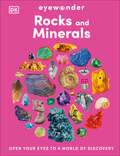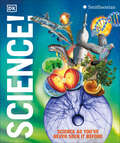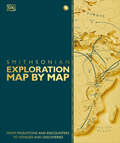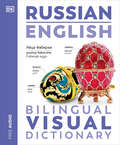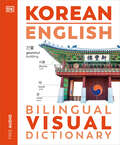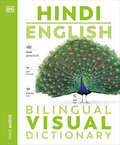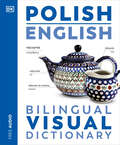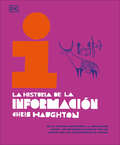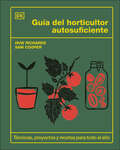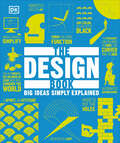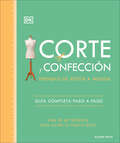- Table View
- List View
Eyewonder Rocks and Minerals: Open Your Eyes to a World of Discovery (Eye Wonder)
by DKSpark the love of learning with this picture-packed guide to Earth’s rocks and minerals for children.DK's best-selling Eyewonder series is back and has been refreshed for the next generation of young readers aged 5-7.This picture-led reference guide will take you on a visual tour of the amazing treasures right under your feet. Stay-at-home explorers will feel inspired by the dramatic photographs, up-to-date information and fact-packed pages, and a brand-new "eyewonder" feature where knowledge meets real-world application.Throughout the pages of this newly revised book on rocks and minerals, you can find: Fully updated and revised content for children starting to develop a passion for science.Eye-catching photographs that grab the attention of young readers and keep them coming back for more.Engaging facts, simple explanations, and fun activities throughout the book.Eyewonder Rocks & Minerals introduces children to the incredible world of precious stones, different rock types, and even rocks from space. Children can discover how rocks form, find out what minerals are, and explore the hundreds of uses we have for them in this refreshed guide. Explore the series!The Eyewonder series is back and better than ever, with a fresh new look and the latest information. If you liked Eyewonder Rocks and Minerals, why not dive into Eyewonder Oceans or Eyewonder Human Body?
Our World in Numbers: Planet Earth (DK Oour World in Numbers)
by DKLearn about everything on planet Earth with this book of extraordinary figures and number-based facts for children aged 9-12!Put the fun back into learning and take children on a number-crunching journey around our incredible planet. From microscopic minerals to majestic mountains and everything in between, learn all about planet Earth with more than 1,000 weird and wonderful numbers.Our World in Numbers: Planet Earth will have you impressing your family and friends like never before with mind-blowing figures behind rising sea levels, the gradual growth of mountains, and wild weathers. Children aged 9-12 will number-crunch their way around the planet, discovering everything about world's biggest oceans, rivers, and mountains.This Earth book of fantastic figures offers:More than 1,000 astonishing Earth facts for children aged 9-12.Different topics divided by 5 chapters that explore the planet.Eye-catching double page features, including vibrant photographs and graphics for every topic.Fun and surprising information on more than 80 topics to engage children in the world around them.This data-packed adventure through the animal world is filled with everything you’ve ever wanted to know about the planet, with full-page photographs and fun, colorful images, wacky fact-bites, and funky figures to become an animal expert! More in the seriesOur World in Numbers explores figures and number-based facts through exciting topics, vibrant photos and exciting graphics. If you liked Our World in Numbers: Planet Earth, why not try Our World in Numbers: Animals, and learn about the animal kingdom, or Our World in Numbers: Dinosaurs, and discover the prehistoric world.
LEGO Marvel Spider-Man Explore the Spider-Verse
by DKThis edition does not include a minifigure.Grab your Spidey-Suit and explore the Spider-Verse in this first-ever LEGO® Marvel Spider-Man™ book!Discover a vast multiverse of spidery Super Heroes and their unique worlds in this fun and engaging guide to the world of LEGO Marvel Spider-Man. Learn about the vehicles and locations and meet amazing superstars like Peter Parker, Miles Morales, and Gwen Stacy – as well as lesser-known characters like Pork Grind and Scarlet Spider.Swing into action with LEGO Spider-Man as you explore the Spider-Verse:Features LEGO sets based on the Marvel Comics and films, showcasing a range of fan-favourite Spider-Man characters, vehicles, and locationsExplore LEGO Spider-Man’s world, gadgets, and suits as you find out more about the web-slinging hero and his friendsA wonderful gift for younger kids who love LEGO, Spider-Man, or both!Minifigure not included in this editionThis entry point to the Spider-Man multiverse is the perfect gift for young fans eager to know more about LEGO Spider-Man, giving them exciting facts and behind-the-scenes insights they won’t find anywhere else.© 2025 The LEGO Group© 2025 MARVEL
Biodynamic Gardening: Organic Growing Guided by the Moon for Bountiful Harvests
by DKWhether you're just getting started in biodynamic gardening, or you're an experienced biodynamic farmer wanting to learn more, Biodynamic Gardening is the right resource for learning more about the biodynamic method of organic gardening. This clear, practical guide gives you tried-and-true advice on biodynamic gardening and tips on this ultra-green, organic gardening method. Full-color photographs and easy-to-understand charts and graphs are helpful tools in organizing information in a way anyone can understand and use in biodynamic gardening. Biodynamic gardening makes use of natural cycles and mindful planting to take organic gardening to the next level, and Biodynamic Gardening covers everything. Topics include soil preparations, lunar charts, composting, cycles of rest, rich and healthy soil, organically controlling pests, ripening plants, and more. Grow delicious vegetables and healthy food, or grow beautiful blooms and flowers with the information you'll find in Biodynamic Gardening.
How to Photograph Absolutely Everything (DK Tom Ang Photography Guides)
by Tom AngThis practical guide from photography expert, Tom Ang, will help you achieve the best shot possible in every scenario – from creating a silhouette to impromptu still lifes. In our online world, taking a good photograph has become an essential life skill.Full of essential advice, hints, and tips, How to Photograph Absolutely Everything gives you straightforward step-by-step guidance on what equipment you will need, the best approach for each subject, how to think about composition and find the right light, and how to frame each shot effectively. Checklists allow you to focus on what is important, while “tricks of the trade” show you how to turn a good picture into an amazing one.From cityscapes to landscapes, and tackling children’s parties to capturing the magic of seasonal celebrations, How to Photograph Absolutely Everything is the essential guide to improving your digital photography skills and getting the most out of your digital camera (or smartphone).
Science!, 2nd Edition (DK Knowledge Encyclopedias)
by DKDK’s best-selling richly illustrated encyclopedia series explores the wonderful world of science.Learn the ins and outs of science as you’ve never seen it before, through incredibly detailed 3D illustrations, in this encyclopedia for children aged 9+.Knowledge Encyclopedia’s clear explanations, illustrations, photographs, and 3D images will engage children in complex subjects. Learn about hundreds of vehicles that float, fly, or speed across the land, including the record breakers—the fastest, largest, longest, and strangest modes of transportation ever to zoom, sail, or soar.This all-encompassing science encyclopedia for kids offers: An impressive collection of facts, charts, timelines, and illustrations.A visual approach using illustrations, photographs, and extremely detailed 3D CGI images.Clear explanations of physics, chemistry, and biology, as well as space exploration, the latest technology, wonderful wildlife, and our amazing bodies.Children can explore science in a new and exciting way. Learn about groundbreaking topics like looking inside a cell, pulling apart the ever-present electronics in our lives to see how they work, showing how ships stay afloat, and examining the forces that hold the Universe together. This impressively detailed encyclopedia uses awesome illustrations to show biology, chemistry, and physics in the world around us. All the essential information in easy-to-read text with additional fun facts, and brought to life with amazing 3D illustrations that look inside the anatomy of a blue whale, zoom into a molecule of water, and out of the Solar System.More in the seriesKnowledge Encyclopedia Science! is part of DK’s visual and hugely successful Knowledge Encyclopedia series. Complete the collection and dive into the deep with Knowledge Encyclopedia Ocean!, take a trip to the solar system with Knowledge Encyclopedia Space! and travel back to prehistoric times with Knowledge Encyclopedia Dinosaur!
Eyewitness Encyclopedia of Animals (DK Eyewitness)
by DKExperience the world's most incredible animals in one amazing book.Become an eyewitness to the world’s most amazing animals in this picture-led encyclopedia which will take children aged 9+ on a tour of the marvellous animal kingdom. Like the hugely successful Eyewitness series itself, Eyewitness Encyclopedia of Animals includes every animal topic children want to read about. The world's most amazing animals are here, from tiny ants to the mighty blue whale and soaring eagles to relaxed sloths. Each page is illustrated with jaw-dropping photography and filled with facts and images that are ideal for children aged 9+. This fact-packed animal encyclopedia for children offers: The next book in the new Eyewitness Encyclopedia series, following the epic Eyewitness Encyclopedia of Everything that’s sold over 100,000 copies.Exciting photography, more than 1,500 images, and a clear design, familiar from the rebooted Eyewitness series.Features that are full of facts and stats, quizzes, and interviews with experts, including deep sea explorers and veterinary surgeons, who answer kids' questions about what they do and why they love it.Eyewitness Encyclopedia of Animals introduces the ultimate guide to the wonders of wildlife, from deadly predators to beautiful butterflies, all as you've never seen them before. And meet the experts who study them, from entomologists to zoologists, in absorbing Q&As that explain what they do. With its mix of nerdy knowledge, fun facts, and incredible images, this extraordinary book will keep kids engaged for hours.
Exploration Map by Map: From Migrations and Encounters to Voyages and Discoveries (DK History Map by Map)
by DKDiscover the epic history of human exploration and migration, and the stories of fearless pioneers the world over, with this stunning tour of history - map by map. Charting everything from the movement of early Homo species out of Africa some 1.8 million years ago to the astonishing voyages of Polynesian sailors across the Pacific from 4,000 BCE, and from the California Gold Rush to the Race for Space, entries explain the movements of people and cultures who set off into the unknown - in search of adventure or a better life. Specially commissioned maps show the key driving factors of each journey, and why certain routes were chosen over others - whether due to climate, terrain, or territory - while stunning contemporary examples offer fascinating insights into the unique world-views and political motivations of the people who commissioned them, and the cartographers who created them. The voyages of history’s greatest explorers - from Zheng He to Ibn Battuta and Marco Polo - are brought to vivid life with accompanying photos, illustrations, and original artefacts, along with recent missions to chart the depths of the oceans and the surface of Mars. And entries also explore the experiences of established Indigenous groups and the impact of settler populations. Packed with fascinating detail and bursting with lavish illustrations, Exploration: Map by Map is a must-have title for anyone who loves maps, history, or the pioneering spirit.
DK Super Planet The Great Lakes (DK Super Planet)
by DKDiscover the largest group of freshwater lakes in the world and their importance to the geography and environment around them.DK Super Planet The Great Lakes is part of the new DK Super Planet series for children aged 5-7 to learn all about life on and around the Great Lakes.Captivating and curriculum-aligned, this book is the perfect support for learning about the wonders of our planet. It builds background knowledge and covers core scientific content, including the characteristics of each lake, the history of the Great Lakes, and why they are so important.This geography book for children offers:A guide to reading through curriculum-aligned content and exciting illustrations.A highly visual approach that makes the association between words and where they originate easier to understand.Material to help children become more confident readers, speakers, and spellersCaptivating and curriculum-aligned content, diagrams and hands-on experiments provide an immersive learning experience while covering core information about a range of landforms.With specially designed sections that build scientific vocabulary and make complex concepts accessible to children, The Great Lakes is the ideal companion to any science learning. Transform learning into an adventure with DK Super Planet, bringing science to life on every page.
DK Super Planet Mountains (DK Super Planet)
by DKOur amazing planet is home to a diverse variety of life–learn how we can protect and conserve it for generations to come.DK Super Planet Mountains is part of the new DK Super Planet series for children aged 5-7 to learn all about different mountains and how they are formed.Captivating and curriculum aligned, this book is the perfect support for learning about the wonders of our planet. It builds background knowledge and covers core scientific content, including what plate tectonics are and an exploration of different types of mountains across the world.This science book for children offers:A guide to reading through curriculum-aligned content and exciting illustrations.A highly visual approach that makes the association between words and where they originate easier to understand.Material to help children become more confident readers, speakers, and spellers.Captivating and curriculum-aligned content, diagrams and hands-on experiments provide an immersive learning experience while covering core information about a range of landforms.With specially designed sections that build scientific vocabulary and make complex concepts accessible to children, Mountains is the ideal companion to any science learning. Transform learning into an adventure with DK Super Planet, bringing science to life on every page.
DK Super Planet Sharing the Planet (DK Super Planet)
by DKOur amazing planet is home to a diverse variety of life–learn how we can protect and conserve it for generations to come.DK Super Planet Sharing the Planet is part of the new DK Super Planet series for children aged 5-7 to learn all about Earth’s materials and resources and how these support our lives.Captivating and curriculum-aligned, this book is the perfect support for learning about the wonders of our planet. It builds background knowledge and covers core scientific content, including what finite and renewable resources are, why certain species are endangered, and the importance of conservation.This science book for children offers: A guide to reading through curriculum-aligned content and exciting illustrations.A highly visual approach that makes the association between words and where they originate easier to understand.Material to help children become more confident readers, speakers, and spellers. Captivating and curriculum-aligned content, diagrams, and hands-on experiments provide an immersive learning experience while covering core information about a range of ecosystems.With specially designed sections that build scientific vocabulary and make complex concepts accessible to children, Sharing the Planet is the ideal companion to any science learning. Transform learning into an adventure with DK Super Planet, bringing science to life on every page.
DK Super Planet A Journey Around our Continents (DK Super Planet)
by DKExplore the seven continents that make up our planet and discover the incredible landscapes and environments of each one.DK Super Planet A Journey Around our Continents is part of the new DK Super Planet series, teaching children aged 7-11 about our continents and what life on each one looks like.Captivating and curriculum-aligned, this book is the perfect support for learning about the wonders of our planet. It builds background knowledge and covers core scientific content, including an explanation of what a continent is and fascinating facts about all seven.This geography book for children offers:A guide to reading through curriculum-aligned content and exciting illustrations.A highly visual approach that makes the association between words and where they originate easier to understand.Material to help children become more confident readers, speakers, and spellers.Captivating and curriculum-aligned content, diagrams, and hands-on experiments provide an immersive learning experience while covering core information about the different continentsWith specially designed sections that build scientific vocabulary and make complex concepts accessible to children, A Journey Around our Continents is the ideal companion to any science learning. Transform learning into an adventure with DK Super Planet, bringing science to life on every page.
DK Super Planet Farming and Food Security (DK Super Planet)
by DKDiscover how farming is an essential part of life on our planet and learn about food security and challenges.DK Super Planet Farming and Food Security is part of the new DK Super Planet series teaching children aged 7-11 about the fascinating environments on our planet and how they are used to support human life.Captivating and curriculum-aligned, this book is the perfect support for learning about the wonders of our planet. It builds background knowledge and covers core scientific content, including what food security is, sustainable farming, and the challenges that impact farms.This science book for children offers:A guide to reading through curriculum-aligned content and exciting illustrations.A highly visual approach that makes the association between words and where they originate easier to understand.Material to help children become more confident readers, speakers, and spellers.Captivating and curriculum-aligned content, diagrams, and hands-on experiments provide an immersive learning experience while covering core information about a range of ecosystems.With specially designed sections that build scientific vocabulary and make complex concepts accessible to children, Farming and Food Security is the ideal companion to any science learning. Transform learning into an adventure with DK Super Planet, bringing science to life on every page.
DK Super Readers Level 3 The Story of Chocolate (DK Super Readers)
by DKHelp your child power up their reading skills and learn about the history and production of chocolate, with this fun-filled nonfiction reader carefully leveled to help children progress.DK Super Readers Level 3: The Story of Chocolate shows children where their favorite sweet treat comes from! It is a motivating introduction to using essential nonfiction reading skills, proving ideal for children ready to enter the riveting world of reading.DK Super Readers take children on a journey through the wonderful world of nonfiction: traveling back to the time of dinosaurs, learning more about animals, exploring natural wonders, and more, all while developing vital nonfiction reading skills and progressing from first words to reading confidently.The DK Super Readers series can help your child practice reading by: Covering engaging, motivating, curriculum-aligned topics.Building knowledge while progressing Grades 3 and 4 reading skills.Developing subject vocabulary on topics such as the process of chocolate-making.Boosting understanding and retention through comprehension quizzes. Each title, which has been leveled using MetaMetrics®: The Lexile Framework for Reading, integrates science, geography, history, and nature topics so there’s something for all children’s interests. The books and online content perfectly supplement core literacy programs and are mapped to the Common Core Standards. Children will love powering up their nonfiction reading skills and becoming reading heroes.DK Super Readers Level 3 titles are visually engaging, full of fun facts about exciting topics, and motivate children to improve their nonfiction reading skills. They are perfect for children ages 8 to 10 (Grades 3 and 4) who are newly independent readers ready to advance.
Russian - English Bilingual Visual Dictionary (DK Bilingual Visual Dictionaries)
by DKLearn more than 6,000 useful words and phrases in Russian with this engaging illustrated dictionary.The Russian English Bilingual Visual Dictionary is your essential companion to learning Russian - from the million-copy bestselling Bilingual Visual Dictionary series. This handy pocket-size guide has over 6,750 fully illustrated words and phrases in Russian and English, along with a free bilingual audio app. Learn all the words and phrases you need to buy food and clothes, talk about work and education, visit the doctor, go to the bank, use public transport, and much more.This Russian-English visual dictionary includes:A fully illustrated bilingual guide for adults.Updated and revised content with new images and vocabulary.A fully updated audio app that allows you to hear all words in both languages.A new edition from the global bestselling Bilingual Visual Dictionary series.Perfect for students, tourists, and business travelers, the dictionary is incredibly easy to follow, with thematically organized vocabulary so you can find closely related words on a particular topic.Words and phrases are illustrated with full-color photographs and artworks, helping to fix new vocabulary in your mind. The supporting audio app enables you to hear all the words and phrases spoken out loud in both languages to help you learn, remember, and pronounce important vocabulary.
Korean - English Bilingual Visual Dictionary (DK Bilingual Visual Dictionaries)
by DKLearn more than 6,000 useful words and phrases in Korean with this engaging illustrated dictionary.The Korean English Bilingual Visual Dictionary is your essential companion to learning Korean - from the million-copy bestselling Bilingual Visual Dictionary series. This handy pocket-size guide has over 6,750 fully illustrated words and phrases in Korean and English, along with a free bilingual audio app. Learn all the words and phrases you need to buy food and clothes, talk about work and education, visit the doctor, go to the bank, use public transport, and much more.This Korean-English visual dictionary includes:A fully illustrated bilingual guide for adults.Updated and revised content with new images and vocabulary.A fully updated audio app that allows you to hear all words in both languages.A new edition from the global bestselling Bilingual Visual Dictionary series.Perfect for students, tourists, and business travelers, the dictionary is incredibly easy to follow, with thematically organized vocabulary so you can find closely related words on a particular topic.Words and phrases are illustrated with full-color photographs and artworks, helping to fix new vocabulary in your mind. The supporting audio app enables you to hear all the words and phrases spoken out loud in both languages to help you learn, remember, and pronounce important vocabulary.
Hindi - English Bilingual Visual Dictionary (DK Bilingual Visual Dictionaries)
by DKLearn more than 6,000 useful words and phrases in Hindi with this engaging illustrated dictionary.The Hindi English Bilingual Visual Dictionary is your essential companion to learning Hindi - from the million-copy bestselling Bilingual Visual Dictionary series. This handy pocket-size guide has over 6,750 fully illustrated words and phrases in Hindi and English, along with a free bilingual audio app. Learn all the words and phrases you need to buy food and clothes, talk about work and education, visit the doctor, go to the bank, use public transport, and much more.This Hindi-English visual dictionary includes:A fully illustrated bilingual guide for adults.Updated and revised content with new images and vocabulary.A fully updated audio app that allows you to hear all words in both languages.A new edition from the global bestselling Bilingual Visual Dictionary series.Perfect for students, tourists, and business travelers, the dictionary is incredibly easy to follow, with thematically organized vocabulary so you can find closely related words on a particular topic.Words and phrases are illustrated with full-color photographs and artworks, helping to fix new vocabulary in your mind. The supporting audio app enables you to hear all the words and phrases spoken out loud in both languages to help you learn, remember, and pronounce important vocabulary.
Polish - English Bilingual Visual Dictionary (DK Bilingual Visual Dictionaries)
by DKLearn more than 6,000 useful words and phrases in Polish with this engaging illustrated dictionary.The Polish English Bilingual Visual Dictionary is your essential companion to learning Polish–from the million-copy bestselling Bilingual Visual Dictionary series. This handy pocket-size guide has over 6,750 fully illustrated words and phrases in Polish and English, along with a free bilingual audio app. Learn all the words and phrases you need to buy food and clothes, talk about work and education, visit the doctor, go to the bank, use public transport, and much more.This Polish-English visual dictionary includes:A fully illustrated bilingual guide for adults.Updated and revised content with new images and vocabulary.A fully updated audio app that allows you to hear all words in both languages.A new edition from the global bestselling Bilingual Visual Dictionary series.Perfect for students, tourists, and business travelers, the dictionary is incredibly easy to follow, with thematically organized vocabulary so you can find closely related words on a particular topic.Words and phrases are illustrated with full-color photographs and artworks, helping to fix new vocabulary in your mind. The supporting audio app enables you to hear all the words and phrases spoken out loud in both languages to help you learn, remember, and pronounce important vocabulary.
La historia de la información (The History of Information): De las pinturas rupestres a la revolución digital: un recorrido ilustrado por los avances que han transformado el mundo
by Chris HaughtonEmprende junto a tus hijos un inolvidable recorrido por la historia global de la información y la comunicación.¿Qué es lo que hace que la tecnología no caiga en desuso y esté en constante desarrollo? La respuesta es: ¡la información! La manera en la que almacenamos y compartimos información ha cambiado mucho a lo largo de la historia y ha jugado un papel fundamental en la evolución de todos los aspectos de nuestra sociedad, como el social, el político o el económico.Pasa las páginas de esta enciclopedia para descubrir cómo el desarrollo de la comunicación y la recopilación de datos e información nos ha llevado al progreso tecnológico y a la vida tal y cómo la conocemos.En su interior, encontrarás: La historia de la información y la comunicación, desde el surgimiento de los primeros idiomas y las pinturas rupestres hasta las diferentes formas en las que nos comunicamos hoy en día. Contenido escrito por el autor e ilustrador mundialmente famoso y ganador de múltiples premios, Chris Haughton.Explicaciones y datos sobre los conceptos, sistemas y herramientas más actuales, como la inteligencia artificial, el Big Tech, el Big Data o el “hacerse viral” en redes sociales. Diseño moderno con ilustraciones llamativas y divertidas. Conoce cada detalle del origen del lenguaje oral y escrito, las formas en las que se ha transmitido y registrado la información a lo largo de los años, y cómo todo esto ha ayudado al ser humano a lo largo de la historia. Un libro imprescindible para aprender lo importantes que son y han sido la comunicación y la información en nuestras vidas.-------------------------------------------Take children on an illuminating journey through the evolution of knowledge and communication with the debut non-fiction book by best-selling author Chris Haughton.Discover how the ways we share and store information have shaped and changed the world in this utterly unique book for adults and children. What is it that makes technology improve rather than stay static or even fall into decline? The answer is information.Celebrate your child's curiosity in this book of information, offering: A beautiful look at the story of information; from the first languages and cave paintings through to how we communicate and record information today.Content written by world famous and multi-award winning author and illustrator, Chris Haughton.A global journey throughout history from the origination of language, how information has been passed on and recorded, how this has helped humans.This book tells the story of how we came to collect information, and what it means for us. The ability to record information in the form of writing and collecting data has caused an explosion of technological progress.
Arte anotado (Art, Annotated): La historia del arte en 500 obras
by DKTranspórtate a una galería de arte en este recorrido por más de 3000 años de pintura, escultura y grabados. Lleno de información e imágenes, y organizado cronológicamente, este libro de arte presenta una exquisita recopilación de las obras más importantes de todo el mundo, acompañadas de anotaciones y análisis detallados que te ayudarán a comprender el simbolismo de cada de una de ellas y su contexto histórico.¡Aprende cómo Miguel Ángel pintó desnudos, qué es el cubismo o de dónde vino la abstracción y disfruta observando las imágenes de tus pinturas y esculturas favoritas!Pasa sus páginas y prepárate para descubrir: Obras realizadas por más 450 artistas de todo el mundo y de culturas diferentes, pertenecientes a diferentes períodos y movimientos artísticos.La composición, el color, la técnica y el simbolismo de cada una de ellas.Imágenes grandes que reproducen cada detalle de manera brillante, acompañadas de explicaciones y comentarios que te ayudarán a entenderlas mejor.Una sección con todos los autores de las obras que aparecen a lo largo del libroContempla frescos del antiguo Egipto, descifra las pistas visuales de La última cena de Leonardo da Vinci y descubre qué inspiró a Louise Bourgeois y Banksy en este libro de consulta visual. Una fuente de inspiración inigualable para todo amante del arte que busca seguir aprendiendo sobre la historia del arte universal.---------------------------------------------------A stunning art gallery in a book, art, annotated spans more than 3,000 years of paintings, sculptures, and prints. Combining reproductions of each work of art with precise annotations and visual analysis, it is an expertly curated selection of the finest art ever created.Immerse yourself in this book and learn all about art - how Michelangelo painted nudes, what cubism is, and where abstraction came from. Discover ancient Egyptian frescoes, read the visual clues to Leonardo da Vinci's Last Supper, and find out what inspired Louise Bourgeois and Banksy. In this art book, you will find:Art from all over the world exploring key elements such as composition, color, technique, and symbolism.Profiles the work of more than 450 artists from across the world and many different cultures, covering every period and major art movement.Art set in its historical context, which makes art, annotated a complete overview of art history.A 32-page directory of biographies of all the artists featured at the back of the book. Packed with information and full of inspiration, art, annotated brings the finest paintings and sculptures right into your home. It is the ultimate history of art and visual sourcebook for all art lovers.
Guía del horticultor autosuficiente (The Self-Sufficient Garden)
by Huw Richards¡Come alimentos de cosecha propia durante todo el año y ahorra dinero en tu cesta de la compra siguiendo los métodos de este libro de horticultura! ?¿Sabías que con un plan anual de cultivo doméstico puedes llegar a producir seis porciones de verduras por persona al día? Si buscas formas rentables de alimentar a la familia o consejos sobre cómo cultivar tu propia comida, este es tu libro. Aprende a cultivar tus alimentos en casa e incorpóralos a tu dieta siguiendo las instrucciones y consejos que se encuentran en sus páginas. Planes de siembra en los que se detalla cuándo abonar y qué plantar o sembrar dependiendo del mes y la estación del año.Instrucciones sobre cómo crear tu huerto y los materiales necesarios para poder cultivar en casa: túneles de polietileno, camas elevadas y absorbentes, bancos para macetas, compost…Útiles consejos para cocinar y para la conservación de alimentos que te ayudarán a aprovechar al máximo tus cultivos.Recetas de platos deliciosos que podrás incluir en tu menú semanal: curry, verduras al horno, ensaladas y aderezos¡Cultivar tus propias verduras, frutas y hortalizas nunca ha sido tan fácil! Siguiendo los métodos de Huw Richards, encontrarás la motivación para convertir tu huerto en un campo de cultivo y ahorrarás dinero mientras disfrutas de alimentos orgánicos y saludables.------------------------------------Eat homegrown food all year round and save money on your weekly shop by following a simple plan for self-sufficiency.Whether you are looking for cost-effective ways to put food on the table and feed your family, a fan of Huw’s YouTube videos and would like to try out the recipes for yourself, or a gardener who would like some guidance on how to grow your own food, this book will be great for you.With this gardening book, you will be able to: Learn about Huw's self-sufficiency ethos, goals, and approaches to growing foodFollow month-by-month planting plans with guidance on key tasks throughout the year and different seasonsDiscover helpful kitchen tips for meal prep, storage, and preserving ideas along with base recipes so you can make the most of your crops.Find recipes for delicious dishes including soup, curry, tray bakes and salads + dressingsFollow Huw Richards and SamCooper’s tried-and-tested methods and save money while enjoying homegrown food all year. If you are interested in learning more or want more books by Huw Richards, check out these titles: Veg in One Bed, Grow Food For Free, and The Vegetable Grower's Handbook.
El libro del diseño (DK Big Ideas)
by DKDiscover the key ideas, innovations, and breakthroughs in the history of design.This book is the perfect introduction to the subject. It explores and explains the big ideas and key principles behind more than 90 celebrated design concepts and movements, placing each in its historical, cultural, and stylistic context.The Design Book analyses the ideas and principles behind the design of pioneering products, information systems and environments, exploring how creativity and innovation shape our lives.In this book, you will find: The evolution of design from ancient times, through early manufacturing to the cutting-edge concepts of the 21st-centuryProfiles of the individuals and manufacturers behind each ground-breaking development andFascinating insight into design movements, showing how each one began and describing its philosophy and visual style, from the aesthetic movement to mid-century modern and contemporary parametricism.Using the Big Ideas series' trademark combination of clear explanation, witty infographics, and inspirational quotes, The Design Book explains what makes a truly great design. It reveals the hidden stories behind the designed world.
¡Explora! (Explore): Descubre un mundo de conocimiento con cientos de mapas y diagramas
by DK¿Quién dijo que los mapas sirven solo para mostrar lugares? Descubre el mundo desde una nueva perspectiva a través de mapas, diagramas e increíbles ilustraciones.¡Observa cómo es nuestro sistema circulatorio, una colmena de abejas, la migración de las ballenas, castillos medievales, sistemas políticos o rutas de vuelo! Este libro infantil invita a los más pequeños a explorar el mundo que les rodea y profundiza en diferentes áreas de la ciencia, la historia, la naturaleza, la Tierra, el espacio y mucho más a través de mapas, diagramas e información complementaria. Un recurso excelente para aprender visualmente y absorber información a primera vista de forma divertida.---------------------------------Maps can be used to show more than just places. Inside this book, you will find maps that explore areas of science, history, nature, and space, alongside diagrams to help you delve deeper into each topic.Discover maps of the human circulatory system, a beehive, the migration of whales, medieval castles, political systems, flight paths, the Earth’s layers, atoms, and much more. Using maps as a visual tool, topics can be represented in ways that make sense to readers at first sight, then enhanced with supporting diagrams and information. This unique book features many subjects, including all the classics you’d expect to find and many more you wouldn’t. Explore is the next generation of DK’s innovative and unparalleled children’s reference.
Ganchillo paso a paso (Crochet Stitches Step-by-Step)
by Claire MontgomerieEncuentra la inspiración en este manual de ganchillo con más de 150 puntos explicados paso a paso.Con un diseño moderno e innovador, Ganchillo paso a paso es el libro ideal para tejedores de todas las edades. Lleva a cabo tus mejores creaciones siguiendo útiles consejos y prueba técnicas que aportarán algo nuevo a tus proyectos.En su interior, encontrarás:Más de 150 puntos y técnicas imprescindibles acompañados de fotografías llamativas y claras instrucciones paso a paso.Un capítulo introductorio que explica todas las herramientas, materiales y técnicas necesarias para que obtengas los mejores resultados en tus labores de ganchillo.Una galería de fotografías con cada uno de los puntadas de ganchillo que aparecen en el libro que te ayudará a encontrar la que necesitas a simple vista y a dirigirte fácilmente a la página correspondiente.¡Descubre un amplio abanico de puntos de crochet y lleva tus habilidades a otro nivel con esta práctica guía tanto para principiantes como para expertos del ganchillo! Crea con ella increíbles objetos, prendas o accesorios para tu hogar, desde mantas y jerseys hasta calcetines y juguetes. ¡El regalo perfecto para cualquier crocheter!-------------------------------------------------An inspirational, practical guide to more than 150 crochet stitches. Take your crochet to the next level with Crochet Stitches Step by Step. This essential guide opens up possibilities for crocheters of all abilities, with many stitches to inspire your next project. Discover how to combine stitches to create eye-catching creations, and try your hand at techniques, including filet stitches and C2C.Crochet Stitches Step-by-Step features:More than 150 essential crochet stitches, with each process step fully photographed and annotated.Clean, fresh layouts with contemporary colorways are used in the stitch photography to appeal to a wide range of readers.An introductory chapter covering all the essential tools, materials, and techniques to provide readers with the best results for their crochet.A gallery chapter showcasing all of the stitches at a glance, so readers can easily find the type or style of crochet they need – or be tempted to try something new.With an at-a-glance gallery to help you find the perfect stitch for your next project, this modern classic is a must-have for crocheters of all ages and abilities. This essential collection of must-try stitches will offer something for every crocheter and every project, with tips on finding the proper techniques to create everything from blankets and sweaters to socks and toys.
Corte y confección (The Tailoring Book): Prendas de vestir a medida
by Alison SmithTodo lo que necesitas saber para diseñar, crear y personalizar tu ropa Aprende las técnicas y los procesos básicos de confección y ensamblaje de prendas, perfecciona tu técnica y gana confianza y eficacia hasta dominar técnicas de alta costura más avanzadas como el montaje de mangas y cuellos, el entretelado o el forrado.Tanto si quieres alterar una prenda vintage como si deseas crear tu propia ropa desde cero, este libro de corte y confección es el manual de referencia que todos los aficionados de la moda necesitan:-Con más de 80 técnicas que pueden aplicarse tanto a la ropa femenina como a la masculina, desde la elección de patrones y tejidos hasta el ajuste y la confección.-Instrucciones paso a paso, ilustraciones y fotografías en gran formato y patrones descargables.-Consejos prácticos sobre medición, corte, alteración y acabado.-Información sobre el material y los útiles de costura necesarios para crear patrones, cortar telas y coser diferentes prendas y diferentes tejidos, a mano y a máquina.-10 proyectos para crear camisas, chaquetas, abrigos y pantalones a medida.Descubre los secretos de la confección de moda de la mano de una de las mayores expertas en sastrería del mundo y empieza a crear, renovar o reinventar prendas según tu estilo.---------------------------------------------Whether you want to alter a vintage jacket or create a full-tailored suit, this tailoring reference guide has everything you need to produce elegant, bespoke garments that last a lifetime.With over 80 step-by-step techniques on measuring, cutting, altering, and finishing, this is the only book you will need to create and alter a tailored garment.Alison Smith MBE is one of the world's leading tailoring experts, and in her new book, she reveals trade secrets and all the practical know-how necessary to master this heritage craft. The Tailoring Book is the latest title in Smith's best-selling sewing series. It covers everything from choosing patterns and fabrics to fitting and construction, including techniques that can be applied to both womens- and menswear.With this book, you can learn how to:-Tailor garments by selecting the right tools to create a toile and picking the perfect hand stitch.-Follow 10 detailed garment projects to create shirts, jackets, coats, and trousers-Master the techniques of tailoring with step-by-step instructions and downloadable patterns that guide you through every part of the processThis book includes key equipment and techniques, garment projects with clear step-by-step processes and downloadable patterns, and tips on repairs and alterations. It takes the reader from the basics through to couture techniques.
